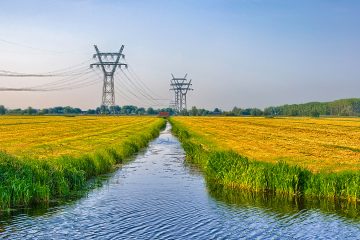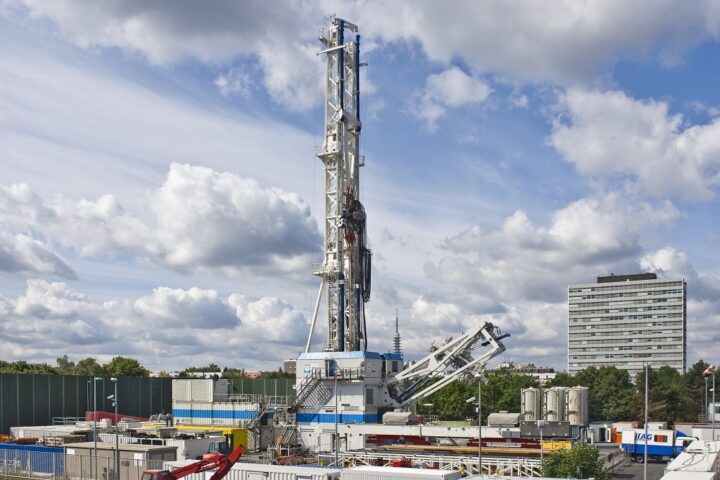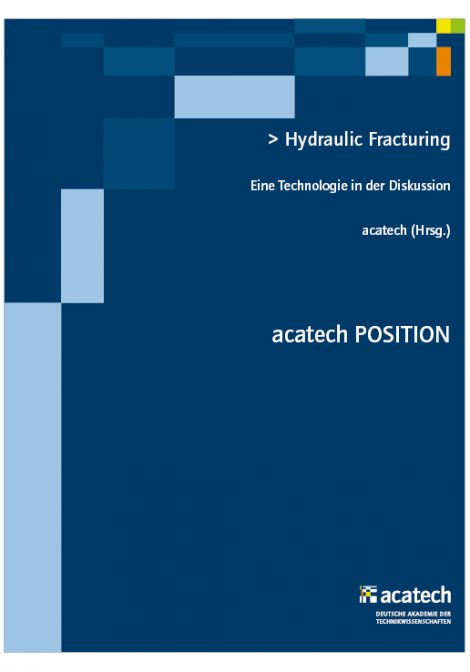Hydraulic Fracturing – A technology under debate

[Kohleflözgas = coalbed methane; Kohle = coal; Dichter Sandstein = tight sandstone; Schiefergas = shale gas] Illustration of unconventional oil and gas deposits, © BGR
Background und aims
Hydraulic fracturing (fracking) is a process in which water and proppants are injected into wells in solid, low permeable underground rock to create fractures (fracs) and flowpaths for the release and transport of fluids. Although the use of this technology in the production of conventional natural gas and deep geothermal energy has gone largely unremarked for several decades, fracking for shale gas from shale formations has received a lot of public attention in recent years. One side of the debate highlights the potential dangers to the environment, the biosphere and the safety of nearby communities, while the other side focuses on the technology’s potential to contribute to security of supply, lower costs and sustainability in the context of the energy transition.
The aim of the project is to produce a comprehensive overview of the technology’s potential and limitations in order to provide additional input for the public debate. As well as explaining the scientific and technical aspects, the publication will take a detailed look at the environmental, economic, regulatory and socio-political dimensions of fracking technology. Particular emphasis will be placed on distinguishing between fracking for deep geothermal energy and fracking for shale gas.
Project group members
- Dr. Peter Burri
Schweizerische Vereinigung von Energie-Geowissenschaftern - Dipl.-Ing. Claus Chur
Technischer Berater, ehem. KCA Deutag Drilling GmbH - Prof. Dr. Andreas Dahmke
Universität Kiel - Prof. Dr. rer. nat. Dr. h. c. Rolf Emmermann
Deutsches GeoForschungsZentrum GFZ - Dr.-Ing. Klaus Freytag
Landesamt f. Bergbau, Geologie u. Rohstoffe Berlin/Brandenburg - Prof. Dr. Gottfried Grünthal
Deutsches GeoForschungsZentrum GFZ - Prof. Dr. em. Hans-Peter Harjes
Ruhr-Universität Bochum - Prof. Dr. Alexander Jovanovic
Universität Stuttgart - Dr. Erwin Knapek
GtV – Bundesverband Geothermie e.V. - Prof. Dr. Thomas Kohl
Karlsruher Institut für Technologie - Dr. Michael Kosinowski
Bundesanstalt für Geowissenschaften und Rohstoffe - Prof. Dr.-Ing. habil. Dr. rer. nat Michael Kühn
Deutsches GeoForschungsZentrum GFZ - Prof. Dr. Hans-Joachim Kümpel
ehem. Bundesanstalt für Geowissenschaften und Rohstoffe - Dr. Jörn Lauterjung
Deutsches GeoForschungsZentrum GFZ - Dipl.-Ing. Waldemar Müller-Ruhe
Technischer Berater, ehem. H. Angers Söhne - Prof. Dr. rer. pol. Dr. h.c. Prof. E. h. Ortwin Renn
IASS Potsdam - Prof. Dr. Martin Sauter
Universität Göttingen - Dr. Rüdiger Schulz
Leibniz-Institut für Angewandte Geophysik - Prof. Dr. Ugur Yaramanci
Leibniz-Institut für Angewandte Geophysik




